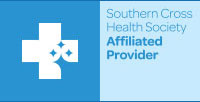Smoking & Alcohol
Smoking has major negative consequences on many aspects of surgery, including higher rates of anaesthetic complication, cardiovascular risk and impairing tendon, bone and wound healing. Increased rates of infection, failure of tendon repair and higher rates of fracture non-union are all consequences of smoking. Quitting smoking for a little as 2 weeks prior to surgery and the 3 months afterwards can improve many of these risks.
In some cases, we will not consider surgery on patients who continue to smoke, due to the unacceptable risk of complications.
Prior to surgery it is also important to decrease alcohol intake.
Paperwork
You will need to complete and send back to the hospital the relevant hospital forms prior to surgery. You will also be given instructions on when to stop eating and drinking, what medications to stop and when to arrive at hospital.
Anaesthetic review
For patients with complex medical conditions we will arrange for a pre-op review by a specialist physician or anaesthetist.
Preparing your home for after Hip Surgery
- Remove all rugs, loose carpets, obstacles, etc, which may be a hazard on returning home
- Have available some extra pillows to sleep comfortably at night
- Bathing in showering accessories may be required, such as a handheld shower
- Provide easy access to telephone, computer, refrigerator
- Prepare and refrigerate food before surgery, for easy access in the early postoperative period
Hospital trip preparation
Prepare personal items to take hospital with you:
- Personal care and hygiene items
- Comfortable walking shoes
- Loose comfortable clothing
- A small amount of money
- Some reading material
- Telephone numbers of persons that may need to be contacted
- Leave valuable jewellery at home
- A list of all medications, supplements, herbs, vitamins, etc
On the day of surgery
On the day of surgery you will be expected to arrive at the hospital 2–3 hours prior to your scheduled surgery time ( if you are not admitted the night before). Call the hospital the day before your scheduled surgery date for your expected arrival time.
The operation start time is an estimate, it can be adjusted for various reasons and the staff will inform you if the time has been changed.
Once admitted, the physiotherapist will come and see you to measure you for crutches, walking frame or a cane. The physiotherapist will also provide you with education on how to use these aids.
We recommend that you wear loose fitting slacks (or shorts in the warmer weather) to the hospital. It is much easier for you after surgery. Your family is welcome to visit and stay with you prior to surgery.
When it is time for your surgery, a nurse will assist you to move to the surgical area. Once you arrive in the operating suite you will be taken to an anaesthetic bay where your anaesthetist will greet you. When everything is ready, you will be taken into the operating room.
- Fasting: Four hours prior to your surgery drink a glass of water. After this point do not eat or drink anything, i.e. do not eat or drink anything 4 hours prior to surgery.
- Your Surgical Experience: Immediately after surgery you will wake up in the recovery room. You may feel a bit groggy. Your aneasthetist will also assess your pain level. Post-operative x-rays will be performed in recovery. After 45 minutes – 1 hour you will then be transferred back to your room on the ward.

